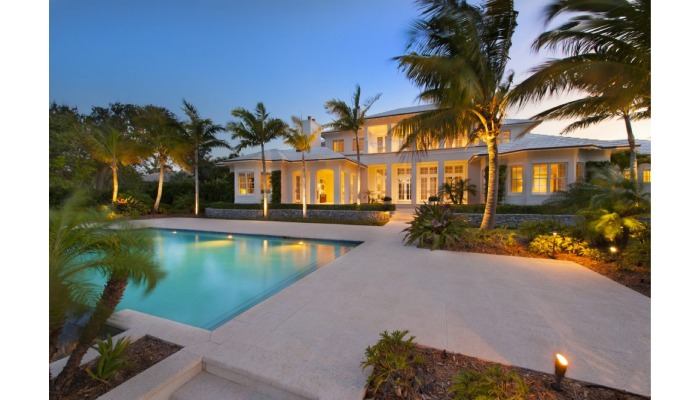
Luxury home auctions are becoming more popular as they help sellers avoid the lengthy time these properties usually spend on the market. While median-priced homes tend to sell within 60 days, luxury homes often linger for months or even years, which can make buyers lose interest. Auctions speed up this process by setting a clear bidding period, creating urgency and transparency that reduce buyer anxiety about overpaying. They also attract a wider pool of global and younger buyers thanks to online tools like virtual tours and online bids. For many sellers needing speed and certainty, auctions offer a practical alternative to traditional sales.
Extended Market Time Drives Sellers to Explore Auctions
Luxury Home Auctions in Florida often face much longer sales timelines compared to median-priced properties, with the average market time exceeding 300 days. According to Concierge Auctions’ Luxury Homes Index, median-priced homes typically sell in under 60 days, while luxury properties can linger on the market for over 500 days when they don’t sell within six months. This extended presence on the market tends to reduce buyer interest, as properties appear less desirable or possibly flawed simply because they have been listed for so long. Sellers experience mounting carrying costs and growing frustration as traditional listing methods fail to maintain buyer urgency. The mismatch between seller expectations and actual market demand often prolongs sales, pushing sellers to reconsider their strategies. In response, many are turning to auctions, which offer a faster, more transparent process. Auctions create a sense of urgency by setting fixed bidding periods and draw multiple buyers simultaneously, helping sellers avoid the drawn-out timelines and repeated price cuts common in traditional sales. This shift reflects a practical move by sellers looking to reduce time on market while aiming to meet or exceed price expectations.

How Long Listings Affect Buyer Perceptions?
When luxury homes linger on the market for extended periods, buyer perceptions tend to shift negatively. They may assume there are hidden defects or that the price is unrealistic. This skepticism reduces their motivation to submit offers, as buyers interpret a prolonged listing as a sign that sellers are struggling to close a deal. As a result, competitive bidding and urgency decline, making it harder for sellers to generate fresh interest. Emotional attachment can cause sellers to hold onto aspirational pricing, which only prolongs the listing time. Buyers, anticipating price drops, might hold off, further slowing the sales process. Over time, stale listings develop a negative reputation that deters new buyers from engaging, creating a cycle that’s tough to break. In the luxury market, where properties average over 300 days on market, this effect is even more pronounced. Keeping listings concise and avoiding prolonged exposure is key to preventing negative buyer psychology and maintaining a property’s appeal.
Faster Sales and Clear Bidding in Auctions
Luxury home auctions typically complete sales in about 60 days, which is significantly faster than traditional real estate transactions that can drag on for months or even years. The fixed bidding period, often around 10 days, sets a clear deadline for buyers, creating a sense of urgency that speeds up decision-making. During this period, buyers can see competing offers in real time, which adds transparency and reduces anxiety about overpaying or hidden competition. Knowing the market reserve price upfront also reassures both sellers and bidders, ensuring that the property will not sell below a minimum value. This transparent, competitive process encourages buyers to make rational, informed bids based on active demand rather than prolonged speculation. Sellers benefit from quicker transactions and predictable sale dates, avoiding drawn-out negotiations and multiple price reductions common in traditional sales. Buyers also appreciate the clarity on timelines and outcomes, which improves engagement and confidence throughout the process.
Preventing Price Drops Through Competitive Bidding
Traditional luxury home sales often involve multiple price reductions as listings linger on the market, signaling to buyers that the property may be overpriced or less desirable. Auctions change this dynamic by bringing multiple buyers together in a fixed timeframe to bid competitively. This environment encourages bidding wars that can push the final sale price closer to or even above market expectations, helping sellers avoid the need for prolonged price cuts. By consolidating buyer interest into a short, intense period, auctions create natural price pressure and reduce the risk of “price fatigue,” which can weaken a seller’s negotiating position over time. Sellers also avoid the stigma attached to repeated price drops, which often deters serious buyers and perpetuates a cycle of declining offers. Instead, the auction format highlights the property’s value through transparent and active competition, giving sellers more confidence that the sale price reflects true market demand. This competitive bidding process uncovers the property’s real market price more efficiently than drawn-out traditional sales, offering a practical way for sellers to maintain price integrity while generating excitement among buyers.
Global Reach and Younger Buyers in Auctions
Luxury home auctions now attract wealthy buyers from across the globe, expanding the pool well beyond local markets. This broader reach increases competition, often driving up final sale prices and speeding up the transaction. Technology plays a key role in this shift: virtual tours and online bidding platforms allow buyers to participate remotely, breaking down geographic barriers. Younger high-net-worth individuals, who are more comfortable with digital tools and online processes, find auctions especially appealing. They value the transparency of seeing live bids and the efficiency of a set timeline, which aligns with their preference for speed and certainty. Auction marketing leverages digital channels to tap into this diverse and tech-savvy audience, making it easier to connect with younger buyers worldwide. This blend of global access and technology not only modernizes the buying experience but also supports the evolving expectations of today’s luxury home buyers.
Auctions Provide Speed and Certainty for Sellers
Sellers looking for quick access to cash often prefer auctions because they offer a clear, fixed timeline for closing a sale, unlike traditional listings that can drag on for months or even years. This speed is especially valuable for clients in the financial sector who need to convert luxury assets into capital rapidly. Auctions reduce uncertainty by setting a firm bidding period, which helps sellers avoid the stress and frustration of indefinite listing times and unpredictable market swings. Instead of waiting and worrying if a deal will fall through after long negotiations, sellers get transparent, real-time feedback on buyer interest and pricing during the auction. This clarity allows them to plan their next steps with confidence rather than being stuck in limbo. In volatile markets or when facing financial pressures, the certainty of an auction’s outcome is a strong draw. Plus, the structured auction schedule streamlines decision-making and avoids the common pitfalls of prolonged price reductions, giving sellers a more efficient and stress-free way to sell high-end properties.
Limitations and Challenges of Luxury Home Auctions
Luxury home auctions come with several limitations that potential sellers need to consider. For one, auctions may not be a good fit for sellers who have fixed, aspirational prices in mind, as the final sale price can be unpredictable and sometimes lower than expected. Setting a reserve price for ultra-luxury properties is often tricky because these homes frequently lack comparable sales, making valuation more complex. Location remains a critical factor since buyers must genuinely want to live in the community where the property is situated; otherwise, even aggressive bidding might not materialize. The auction process also involves additional procedural steps, such as qualified buyer registration and pre-auction inspections, which can add complexity and require more upfront effort from both sellers and buyers. Some buyers prefer the traditional approach of private negotiations and extended viewings, finding auctions too fast-paced or stressful due to time pressure and public competition. Marketing luxury auctions demands specialized expertise and outreach strategies to attract the right audience, which can be costly and resource-intensive. Moreover, auctions might not reach every potential buyer, especially those who favor private offers or off-market deals. Sellers must carefully weigh the benefits of a quicker, transparent sale against the possibility of price volatility and the risk of not achieving their ideal price point.
Technology Enhances Auction Accessibility
Technology has played a crucial role in making luxury home auctions more accessible and appealing. Virtual tours allow potential buyers to explore properties remotely, which is especially important for high-end homes that often attract interest from distant or international buyers. AI-driven analytics help match listings with the right buyers, increasing the chance of competitive bidding. Online bidding platforms enable participants to join auctions conveniently from anywhere, removing traditional barriers like travel or scheduling conflicts. These digital tools also bring transparency to the process by showing real-time bids and auction progress, which builds trust and reduces buyer anxiety. Luxury brokers are integrating these innovations to streamline marketing efforts and simplify transactions, making the entire experience faster and more efficient. This technological integration not only expands the auction’s reach to younger, tech-savvy buyers but also supports quicker decision-making and wider market participation, ultimately enhancing the overall efficiency and accessibility of luxury home auctions.